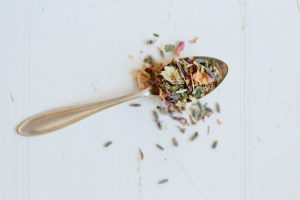The Naturopathic Co.

You're using an outdated browser. Please upgrade your browser to improve your experience.
Where do you start when wanting to improve gut health?
SPEED READ>> For our gut to be strong, we need the perfect balance of micro-organisms. In order to achieve that, we must feed it nutrient-rich foods to foster the growth of good bacteria.
Studies show that cultivating diverse and beneficial gut flora is the key to strong immunity, robust digestion, detoxification, balanced moods, balanced hormones, weight loss, and longevity. It is this internal complex ecosystem, our microbiome, which keeps us in good health.
Greater gut diversity supports overall health and wellbeing. A wide and diverse range of gut microbes that coexist harmoniously produces thousands of health-supportive metabolites, such as short-chain fatty acids. Different strains of bacteria feed off different types of food. Ensure diversity in your diet.
It is also really important to encourage the growth of healthy bacteria in the gut through a wide variety of food sources, fresh vegetables loaded with phytonutrients (5-7 serves per day, including leafy greens, broccoli, cauliflower, cabbage, beetroots, carrots, tomatoes, onions, leeks, peas, legumes, sea vegetables), fruit (such as apples, blackberries, strawberries, blueberries, oranges, plums, and pomegranite), as well as herbs and spices, nuts and seeds, and quality protein sources.
Fermented foods are a natural source of probiotics.
Kefir, kombucha, fermented vegetables and pickles/ sauerkraut, natto, miso, tempeh, apple cider vinegar
(*if you have gut issues already, some of these foods may worsen symptoms, so treat the underlying gut issue first).
Asparagus, onions, garlic, leeks, chicory, artichoke, dandelion, slightly green bananas, oats, apples, cacao, flaxseeds, seaweed, cooled potatoes and rice to help encourage the increase of healthy bacteria in the gut.
A great place to start improving gut health is conducting a functional microbiome stool testing analysis to evaluate a client’s microbiome status.
Gut health can quickly become compromised when unwanted and unwelcome microorganisms take up residence. You can have all kinds of digestive symptoms (bloating, reflux, stool fluctuations, pain). Once we know what’s inside your gut, we can treat it properly.
If you’d like to know if you have healthy numbers of beneficial bacteria in your gut, or perhaps if you have an imbalance in pathogenic bacteria, then talk to your naturopath about being tested. Stool tests can determine your levels of bacteria, as well as important biochemical markers including digestive absorption and metabolic markers. Testing provides an excellent assessment of digestive function and is not only a good idea for those suffering from suboptimal gut function, but for all of us who are keen to optimise health.
To treat digestive issues from the underlying cause, make time to see our South Yarra naturopath, Brisbane naturopath, Sydney Naturopath, Perth Naturopath, Hobart naturopath, or Adelaide Naturopath, or find out if we can help you by booking a FREE 20 minute Discovery Call online via zoom
Yvette is a qualified Melbourne-based Naturopath and Nutritionist, MINDD Practitioner, member of the Naturopaths and Herbalists Association of Australia, and Complementary Medicine Association. Yvette specialises in the treatment of digestive complaints, skin issues, mood disorders, hormonal concerns, fatigue, and also has a key interest in children’s digestive and neurological conditions. Yvette consults Australia-wide via Zoom. Book HERE
|
|
|
|
Comments are closed.